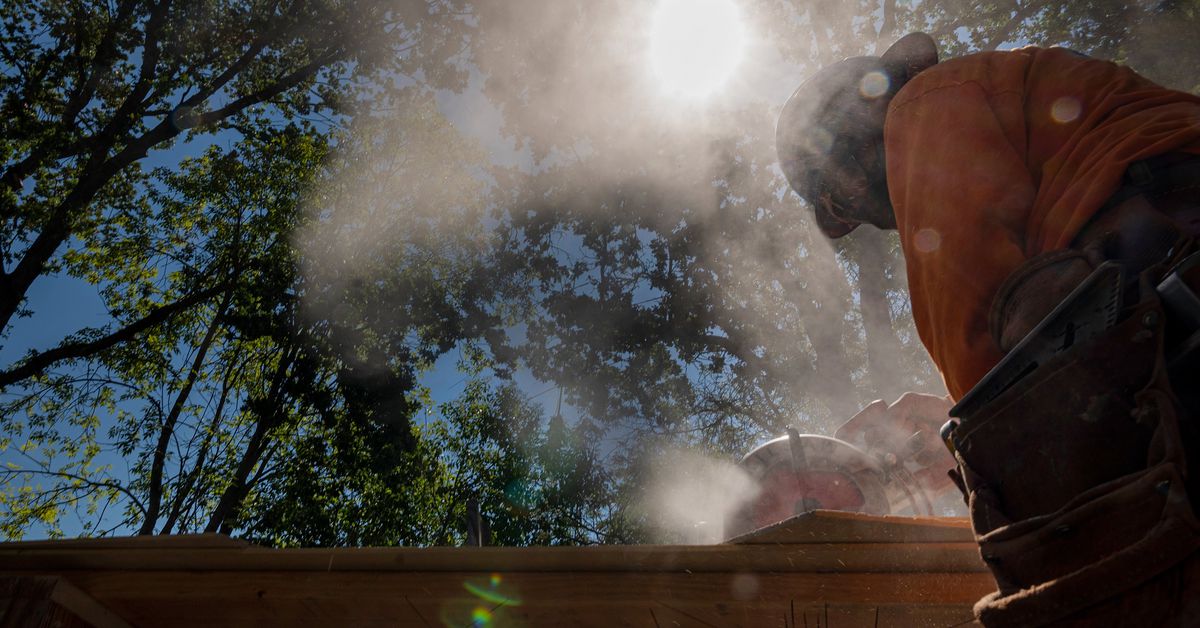
Extreme heat is becoming such a big threat to workers in the US that the federal government plans to craft a new federal standard for workplaces, the Biden administration announced today. It’s part of a broader initiative to protect workers and people living in the places most vulnerable to heat-related illness and death.
“Over the past few weeks, I have traveled across the country to see firsthand the devastating human and economic toll of extreme weather exacerbated by climate change,” Joe Biden said in a statement today. “And while we have all seen the graphic and heart-wrenching images of super-storms, wildfires, and floods in recent weeks, another climate disaster is lurking just below the radar: extreme heat.”
“Another climate disaster is lurking just below the radar: extreme heat.”
The Department of Labor’s Occupational Safety and Health Administration (OSHA) will start the rulemaking process today to create a new federal heat standard. There aren’t many details yet on what the rule might look like, but the Biden administration’s announcement hints at a few things it could cover: thresholds for heat stress, heat exposure monitoring, and planning for acclimating to heat.
OSHA also plans to beef up enforcement of existing labor standards when it comes to heat-related hazards. When the heat index — a measure that includes humidity and temperature — rises above 80 degrees Fahrenheit, the agency says it will “prioritize” heat-related issues when it comes to workplace inspections and interventions. It also plans to pay closer attention to industries it deems as having a higher risk of heat stress, including agriculture, construction, delivery workers, and warehouses.
Protecting workers from dangerously hot environments is just one piece of a broader effort among Democrats to tackle an insidious threat that’s only growing worse. Heat kills an average of 702 people every year according to the CDC, making it the deadliest weather-related disaster in the nation over the past three decades. Outside of the workplace, children and the elderly, who have a harder time regulating their body temperatures, are especially vulnerable. Black Americans are also 40 to 59 percent more likely to live in the places likely to see the biggest jump in extreme heat related-deaths in the future, a recent analysis by the Environmental Protection Agency found.
Heatwaves are becoming even more intense as climate change pushes up global average temperatures. The road-buckling heatwave in the Pacific Northwest this year would have been “virtually impossible” without climate change, research found. The country just had its hottest summer on record, tying a record set during the infamous 1936 dust bowl. Globally, July was the hottest month humans have ever recorded.
The Biden Administration also announced efforts to turn more schools across the nation into cooling centers, places where nearby residents can find some reprieve during heatwaves. And a program designed to help low-income Americans pay their energy bills will expand to help more people get air conditioning.
